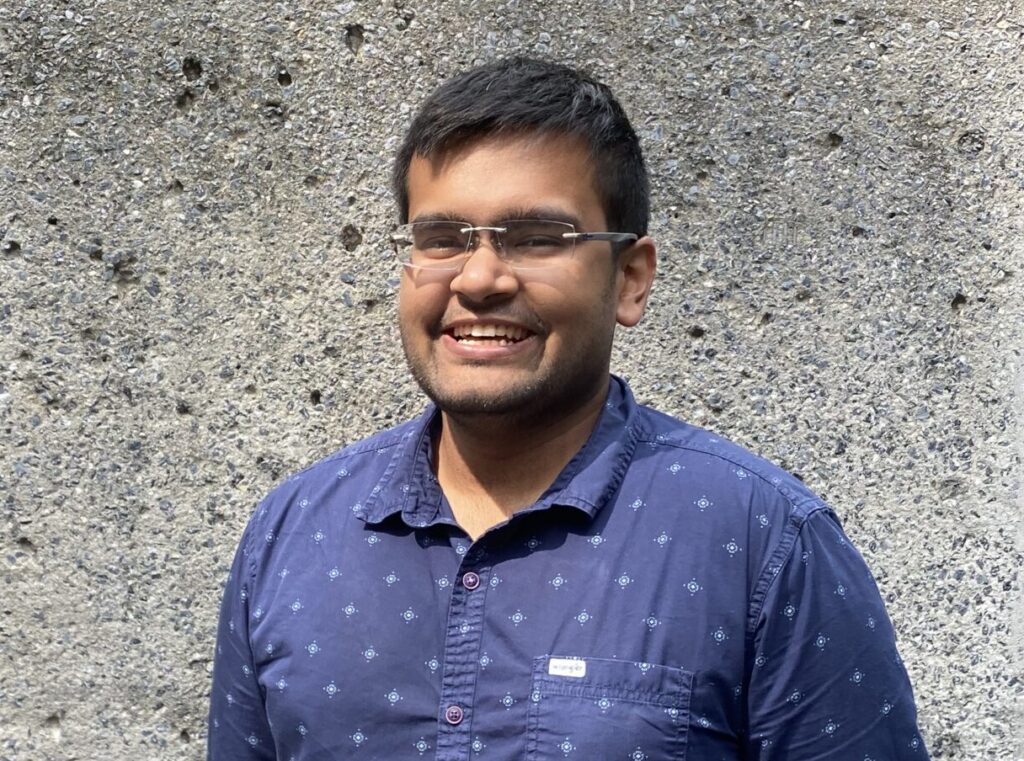 Kaustubh Sridhar
Kaustubh Sridhar
As artificial intelligence becomes more integrated into our daily lives, it’s essential that these systems are able to accurately make decisions in the real world, and react appropriately in complex, ever-changing environments.
That’s the goal of research by Kaustubh Sridhar, a doctoral student in Electrical and Systems Engineering in the Penn Research in Embedded Computing and Integrated Systems Engineering (PRECISE) Center. Sridhar’s research on AI decision making aims to make current models of the world more accurate, to create AI systems that can better learn from expert data, and to create systems that can adapt to new situations quickly.
“I would like to continue doing AI and decision-making research, possibly in industry, after I graduate so that I can help improve autonomous agents in the real world,” says Sridhar. “And of course, my hope is that such agents will help people in a wide range of tasks ranging from household chores to autonomous driving.”
Sridhar, who came to Penn Engineering in 2019 after earning a Bachelor of Technology in Aerospace Engineering from the Indian Institute of Technology Bombay, has been interested in robotics since he was a child, and placed runner-up in a nationwide, LEGO-based robotics competition during middle school.
“In undergrad, I spent my efforts inventing control algorithms for quadrotors, robots with four rotors, which I really liked,” says Sridhar. “I later expanded my boundaries to discover that generally intelligent decision making is the most challenging problem for obtaining robots that can help humans in the real world.”
Throughout his doctoral studies, Sridhar has been working to build general algorithms that are both intelligent and safe for any robot and any decision-making agent. He is a two-time recipient of Outstanding Reviewer awards in top machine learning conferences (ICML and NeurIPS 2022). His work was nominated for the Best Paper award at the International Conference on Cyber-Physical Systems (ICCPS) in 2023. His most recent research has focused on semi-parametric methods for machine learning and decision-making applications that can be used for robot learning and learning-enabled digital or physical systems, such as autonomous vehicles, electric grids and cloud computing.
“The key takeaways include that simple ways to combine the benefits of non-parametric components with neural networks leads to better generalization in learning both dynamics models and policies,” he says. “Some conclusions that surprised me were that semi-parametric methods can provide rigorous guarantees for real-world performance in diverse domains that otherwise cannot be found.”
According to Sridhar, his research dispels a key misconception that it is impossible to obtain guarantees with learning-based components. Another misperception is that it’s easy to automate skills that require both sensory and motor skills (i.e., hand-eye coordination skills), such as grasping and mobility.
“Researchers have observed that learning general policies still remains one of the biggest bottlenecks for deploying AI in the real world,” says Sridhar. “I hope some of my research helps push the boundaries towards solving this problem.”
Next, he plans to work on developing methods for combining the best of reinforcement learning, generative models and in-context learning on large, offline datasets. “In my research, I aim to find the simple changes that create a large impact in practice while also providing guarantees on safety, robustness and performance. I hope this combination will benefit other researchers and the community at large.”
The PRECISE Center’s mission is to contribute expertise to the scientific community and to train the next generation of researchers. Collaboration is essential to this work. If you have a research question, are interested in working with the Center on a project, or if you are an undergraduate who is passionate about AI and would like to work with Sridhar on his research, email precise@seas.upenn.edu.
